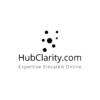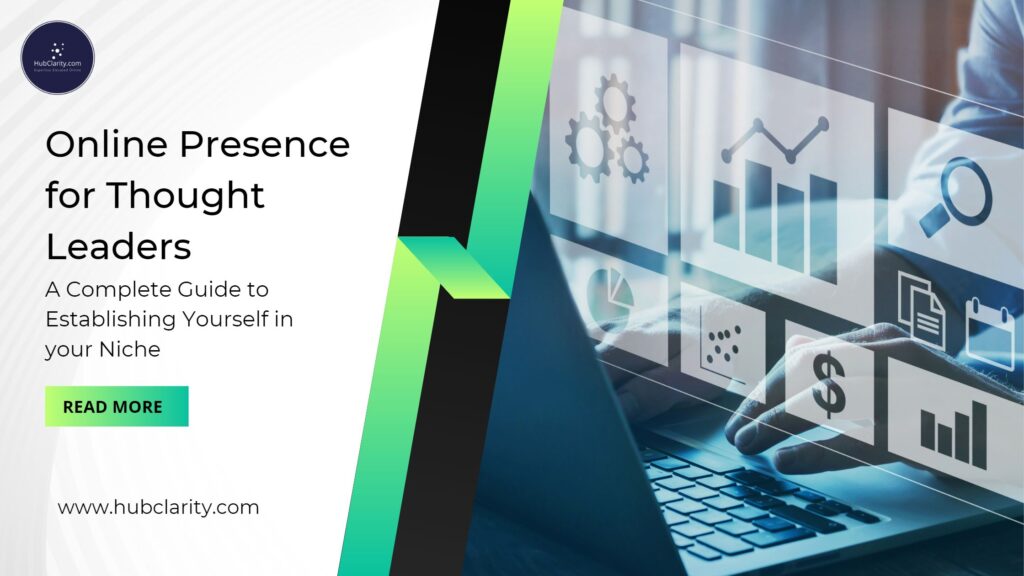Effective Website Maintenance for Thought Leaders: How to Monitor and Update Your Personal Website on an Ongoing Basis
Website maintenance for thought leaders such as university professors, CEOs, or industry experts, is an invaluable asset in sharing expertise and insights with a wider audience. A well-designed, frequently updated personal website not only serves as a professional online presence. It showcases your background, achievements, and offerings but also acts as a platform for engaging with visitors and cultivating a community around your work.
Maintaining a personal website that remains current, engaging, and impactful necessitates regular review and updates. This article delves into strategies thought leaders employ to effectively monitor and update their personal websites on an ongoing basis. We’ll discuss the significance of scheduling dedicated time for website review and reviewing and updating website content. We will also be examining website navigation and layout, testing the website on various devices and browsers, and monitoring website analytics. Finally, we will discuss interacting with website visitors, as well as exploring website security and optimization.
Allocate dedicated time for website review and updates:
Thought leaders should prioritize regularly reviewing and updating their personal websites by setting aside dedicated time. This could be a monthly or quarterly review, depending on individual preferences. Regular website maintenance ensures accuracy, relevance, and a reflection of your current work and interests. Additionally, it allows thought leaders to stay on top of industry trends and address any issues that may arise, such as broken links or outdated information.
Examine and update website content:
During the review process, thought leaders must thoroughly assess their website content for accuracy, relevance, and engagement. This may entail adding new content such as blog posts, articles, videos, and case studies, or updating existing content with fresh insights and information. Thought leaders may also consider repurposing older content into new formats, such as converting a blog post into a podcast episode or an infographic. Keeping content fresh and up-to-date is essential for maintaining credibility, authority, and a strong online presence in your field.
Assess website navigation and layout:
An organized and user-friendly website is critical for allowing visitors to easily access the information they seek. Periodically reviewing the navigation and layout of your website ensures a seamless user experience. Reorganizing content or adding new pages as necessary can further enhance site usability. Thought leaders may also consider incorporating intuitive menu structures, clear calls-to-action, and easy-to-find contact information to improve the overall user experience.
Test websites on various devices and browsers:
In our digital world, mobile-friendly websites that cater to a broad audience are essential. Thought leaders should test their websites on different devices and browsers, ensuring full functionality and ease of use for all visitors. Optimization may require expert assistance if issues prove complex. Additionally, ensuring that your website loads quickly and efficiently can improve visitor retention and reduce bounce rates.
Monitor website analytics:
Tracking personal website analytics provides thought leaders with valuable insights into visitor interactions, helping identify areas for improvement. Some of these areas can be slow loading times, low engagement on specific pages, or high bounce rates. Thought leaders can utilize this information to make necessary adjustments, optimizing their website for the best user experience. Furthermore, tracking user behavior and demographics can help thought leaders tailor their content and offerings to better resonate with their target audience.
Engage with website visitors:
A key advantage of a personal website is the opportunity to engage with visitors and foster a community around your work. Thought leaders can achieve this by incorporating a blog or forum into their website, allowing visitors to ask questions and share feedback. Active audience engagement helps thought leaders identify strengths and weaknesses in their operations and optimize accordingly. Additionally, incorporating social media sharing buttons and encouraging visitors to connect via email or social media can help expand your reach and influence.
Prioritize website security and optimization:
Maintaining a secure and optimized website is crucial for protecting both the thought leader and their visitors. Regularly updating website software, plugins, and themes can prevent security vulnerabilities and improve overall site performance. Thought leaders should also implement SSL certificates to encrypt sensitive data and protect visitor information. Ensuring website security builds trust and credibility with your audience.
Utilize search engine optimization (SEO) techniques:
To maximize visibility and attract a larger audience, thought leaders should incorporate SEO best practices into their website maintenance routine. This includes optimizing title tags, meta descriptions, and header tags, as well as using relevant keywords throughout the content. Additionally, thought leaders should strive to create high-quality, valuable content that attracts organic backlinks, boosting search engine rankings and increasing visibility.
Regularly back up your website:
Regularly backing up your website is essential for safeguarding your valuable content and data. Should your website experience a technical issue, security breach, or server crash, having a recent backup ensures that you can quickly restore your site and minimize downtime. Thought leaders should establish a routine backup schedule and store backups in a secure, off-site location for added protection.
Stay informed about industry trends and best practices:
As a thought leader, it’s essential to stay abreast of industry trends and best practices in website design, development, and maintenance. This knowledge allows you to keep your personal website current, relevant, and engaging. This will also ensure that your online presence remains a valuable resource for your audience. Following industry influencers, attending webinars, and participating in online forums can help thought leaders stay informed and up-to-date.
Takeaways:
Website maintenance for thought leaders is crucial when sharing their expertise and insights with a wider audience. Regularly reviewing and updating content, design, navigation, and layout, as well as monitoring website analytics and engaging with visitors, ensures that your personal website accurately reflects your current work, interests, and authority in your field.
By strategically utilizing your personal website and fostering a sense of community around your work, thought leaders can expand their reach. They will also be able to solidify their position in their industry and ultimately make a greater impact. By implementing the strategies outlined in this comprehensive guide, thought leaders can take their personal websites to new heights and maximize their online presence.


